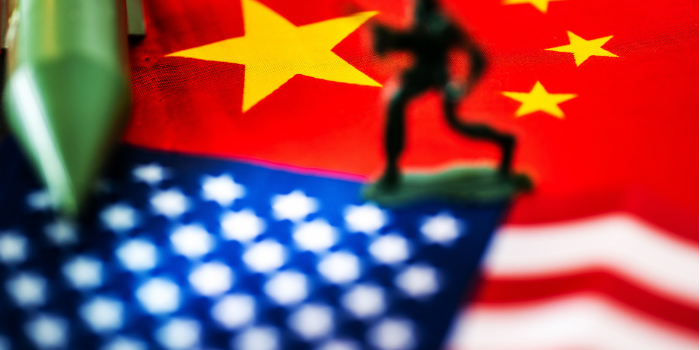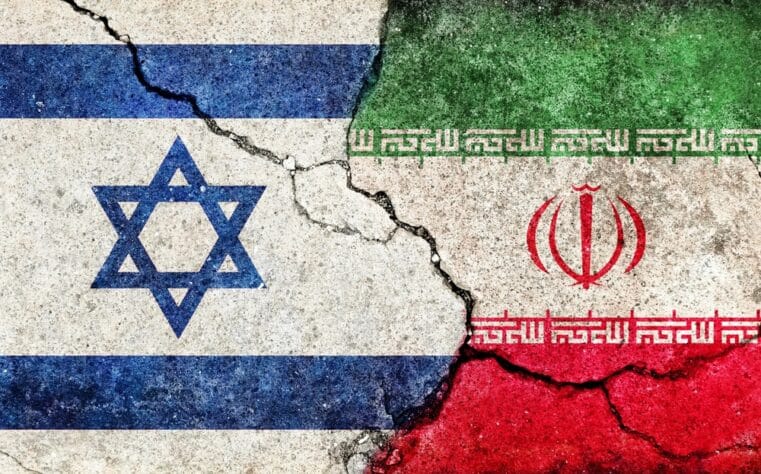
Here’s Where War Between the US and China May Erupt
Confrontations between the U.S. and China in the South China Sea have become a common occurrence. Not only are they common, but they are also, to a reasonable extent, to be expected.
If war is “the continuation of politics by other means,” as the military theorist Carl von Clausewitz writes in his famous masterpiece On War, then the claiming of territory by law, intimidation, or force, can easily be seen as a necessary action for any state harboring an expansionary political stance.
In short, it’s the kind of game that all military/economic superpowers are expected to play.
International courts recognize the claims of six separate nations to various parts of the South China Sea. Among these six nations is the Philippines, a treaty partner with the US.
But aside from the narrow stretch of shoreline surrounding each of the six countries, China claims the entire sea. For reasons clear enough, the remaining nations vehemently dispute China’s claim. And so does the US.
In addition to this current territorial dispute, there is another one taking place in the Strait of Taiwan, the body of water separating the island of Formosa from the mainland.
China has always considered Taiwan to be a “breakaway province,” a claim that Taiwan views as a real threat to its sovereignty.
Furthermore, China believes it has the right to use military force to repatriate its long lost territory.
Fortunately for Taiwan, the majority of the international community does not share China’s vision.
Nevertheless, the issues concerning Taiwanese independence reveals the paper-thin divide that separates the US and China from engaging in an all-out war.
Recently, the US sent two warships across the strait as a show of support for its Asian ally. China viewed this as a provocation, threatening to block such “intrusions” by force.
Considering China’s advanced technological state in the realm of military capability, the US views the deployment of warships to be more of a “symbolic” gesture devoid of any real significant threat (though a threat nonetheless).
Hence, the US has not ruled out escalating this gesture of support by sending US aircraft carriers through the strait.
Beijing’s Foreign Ministry spokeswoman Hua Chunying protests the incursions, urging the US to abide by the mainland’s “one China” principle.
All the while, China has been regularly deploying military aircraft and vessels to conduct exercises in the region, encircling the island.
According to Taiwan’s defense ministry, China sent bombers and fighter aircraft through the Bashi Channel, the waterway that separates Taiwan from the Philippines.
In response to Chinese President Xi Jinping’s statement in January reaffirming China’s right to use military force to reclaim Taiwan, President Trump signed into law the Asia Reassurance Initiative Act, reaffirming US commitment toward Taiwanese independence.
This initiative binds the US not only to providing support (e.g. arms sales) but also to providing military defense, should it be necessary.
When nations are in dispute, there is no judicial body that can mitigate that dispute save a process or institution established by mutual convention (e.g. the United Nations, agreements between countries, etc.).
But when sovereign disputes stem from an absolutist view (e.g. “one China,” destiny, etc.), then such a perspective can easily go well beyond human agreement (the “absolute” is infinitely greater than the legislative process; God’s law is greater than man’s law; etc.).
When no party has the “absolute” right to adjudicate disputes within the realm of “reason,” the backbone of the legislative process, it becomes subject to the natural laws of power.
And this is where two of the world’s mightiest superpowers--the US and China--find themselves: locked within a dispute whose adjudication exceeds the process of human convention, potentially spilling over into the more aggressive realm of human nature. And this is where a full-scale military engagement can easily erupt.











